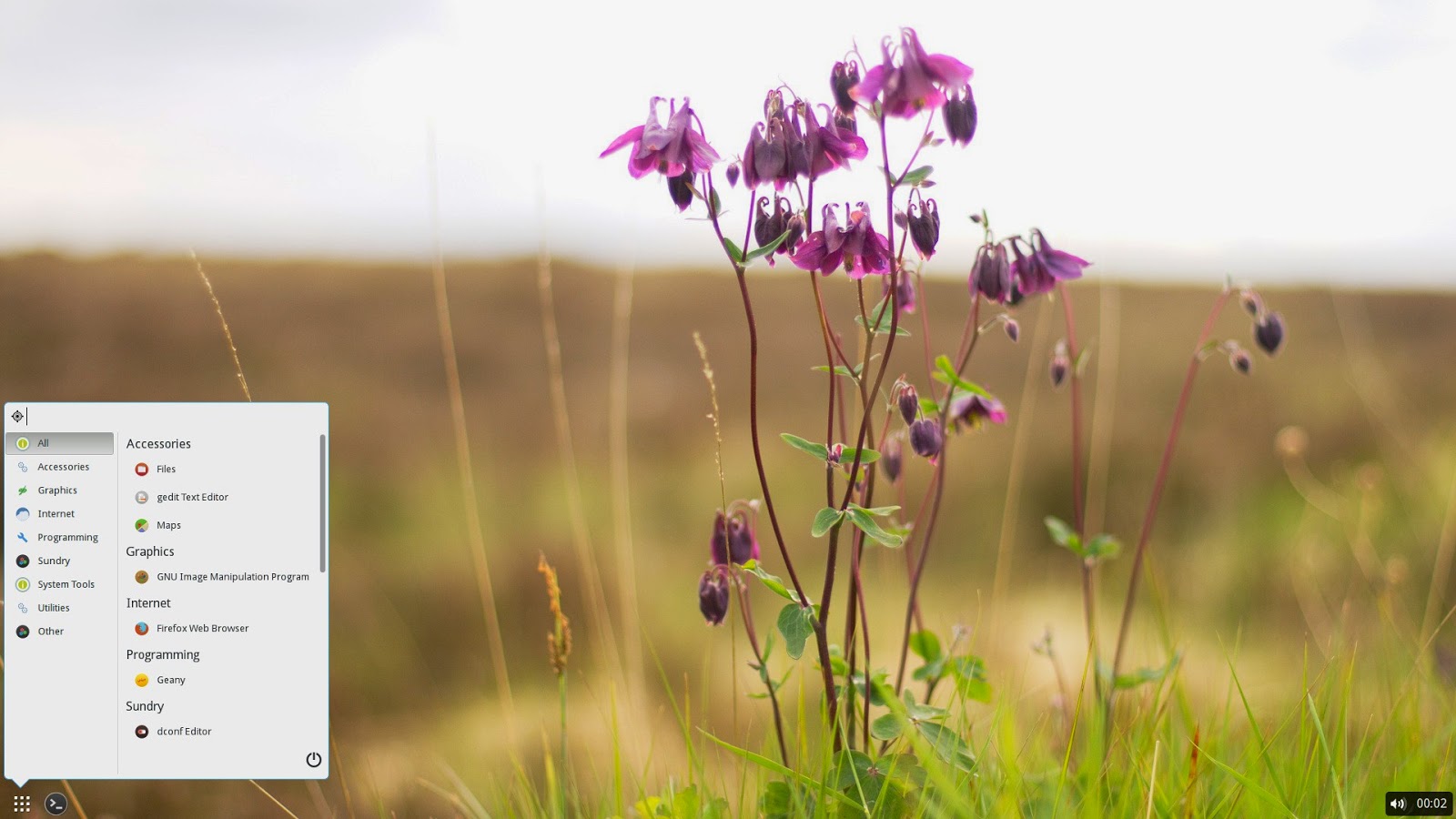How to Install Budgie Desktop 8 in Linux Ubuntu 15.04, 14.10, 14,04 and Linux Mint 17.1, 17
Budgie is default desktop environment of the Evolve OS Linux distribution, and it is Evolve OS project. Budgie desktop is designed for modern user, it focuses on minimal, elegance, and simple desktop. The main point of this Budgie desktop is that it’s not forked from any other project but rather one written from scratch with integration in mind, using GTK and either Vala or C.
Hello we can share about How to Install Budgie Desktop 8 in Linux Ubuntu 15.04, 14.10, 14,04 and Linux Mint 17.1, 17
From the developer of the deprecated SolusOS Linux operating system, we welcome you to Budgie Desktop, an open source software project that integrates with the GNOME graphical desktop environment.
Chrome OS-like interface
Budgie uses a
traditional, yet modern layout. The main panel is located on the bottom
edge of the screen and it’s completely transparent. It aims to look like
Google’s Chrome OS user interface, but it uses various applications
from the GNOME desktop environment.
It’s implemented in GTK3, Vala, C
As
its name suggests, Budgie Desktop is a desktop environment. It is
written entirely from scratch and implemented using the GTK+ GUI
toolkit, as well as the Vala and C programming languages.
Designed for Evolve OS
Budgie
has been designed from the ground up as the default graphical desktop
environment of the Evolve OS operating system, the successor of the
deprecated SolusOS Linux distribution.
Supports a wide-range of Linux OSes
Budgie
Desktop is distributed mainly as source code, via GitHub, which means
that you will be able to download and install it on virtually any Linux
kernel-based operating system, including Ubuntu and Arch Linux.
Fair warning for Ubuntu users
When
installing Budgie Desktop, Ubuntu users are warned that the default
theme will break some of the the desktop’s functionality, especially the
usability of Budgie Panel component. Therefore, do not use any Ubuntu
GTK3 plugins or modifications.
What New in Budgie Desktop 8
- We added a whole bunch of options for the Budgie Menu to the panel preferences, enabling you to use the traditional layout we used with the Budgie Menu, or indeed stick
- with the new version that doesn’t employ categories. We’ve visually refreshed the run dialog and menu, with a much simpler and intuitive (not to mention more responsive)
- feel to everything. Interaction played a huge part this time round, with the menu now sorting items by usage, saving you a lot of time!
- We have auto hide support, a new dark look, application pinning (pin apps as launchers to the panel), dynamic support for GNOME Panel theming, a menubar applet,
- cleaned up the animations… and a whole bunch more!
- IconTasklist: Add pinning support
- IconTasklist: Use .desktop files for quicklists
- IconTasklist: Use .desktop files for icon resolution
- IconTasklist: Support “attention” hint (blue blink)
- Panel: Support dark theme (used by default)
- Add Menubar applet
- Panel: Initial autohide support (manual, not automatic)
- Panel: Support shadow onall screen edges
- Panel: Dynamic support for gnome panel theming
- RunDialog: Complete visual refresh (bootiful)
- BudgieMenu: Add compact mode, use by default
- BudgieMenu: Sort items by usage
- BudgieMenu: Remove old power option
- Editor: Add all menu options to UI
- Support from GNOME 3.10 up to 3.16 (unreleased, git)
- wm: Kill workspace animation (resolve after v8)
- wm: Better animations for changing of wallpapers
- And Other Stuff! (Test it! >
sudo add-apt-repository ppa:evolve-os/ppaOur hope tutorial entitled “How to Install Budgie Desktop 8 in Linux Ubuntu 15.04, 14.10, 14,04 and Linux Mint 17.1, 17” can be useful for visitors.
sudo apt-get update
sudo apt-get install budgie-desktop


0 Response to “How to Install Budgie Desktop 8 in Linux Ubuntu 15.04, 14.10, 14,04 and Linux Mint 17.1, 17”
Post a Comment